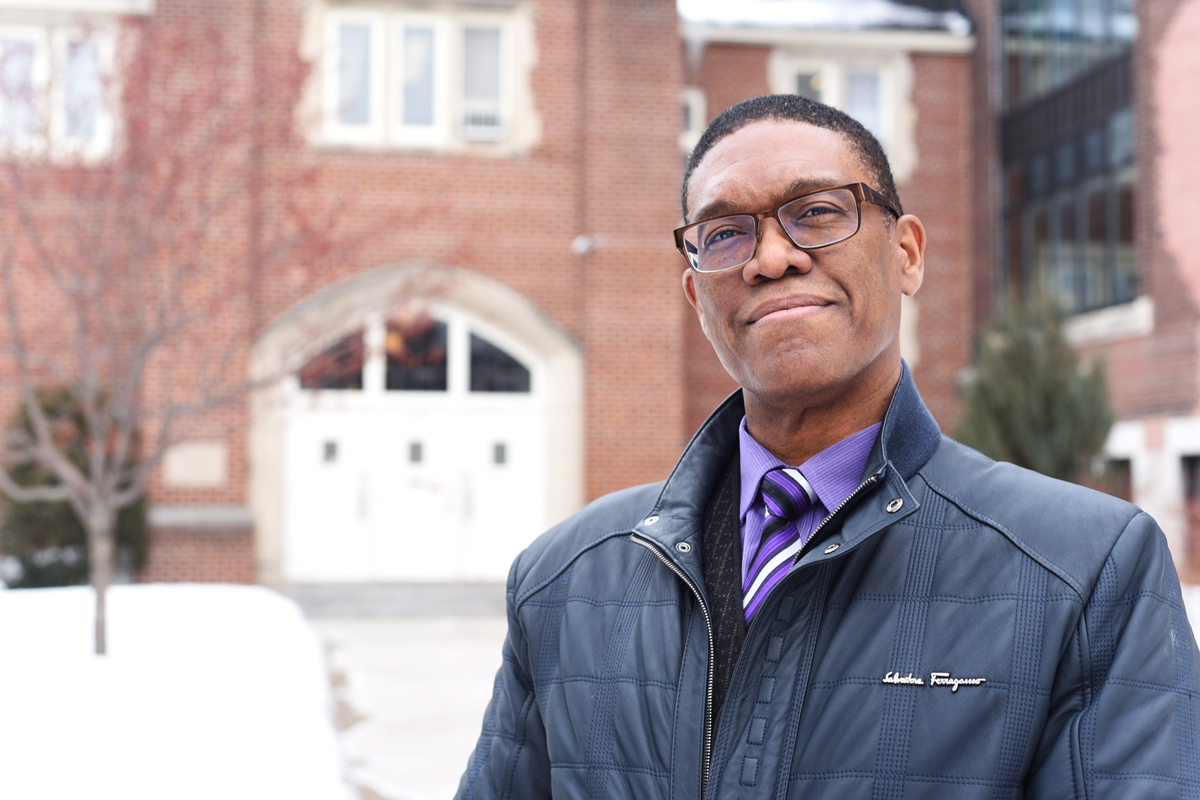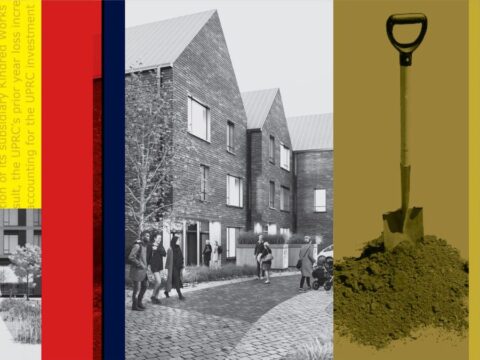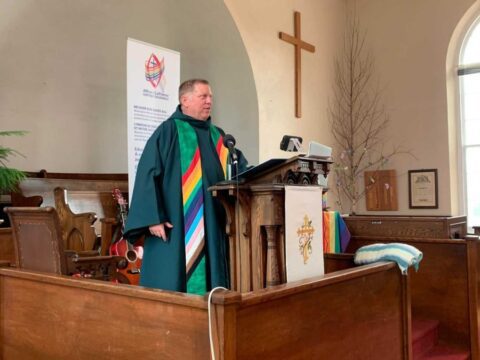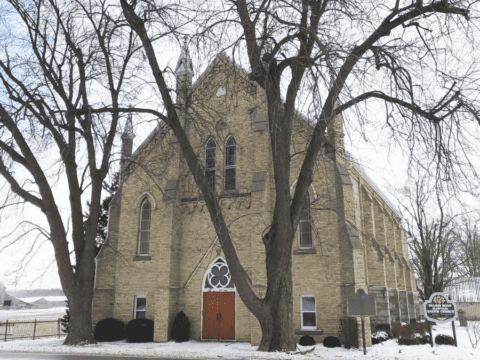Q Your church was vandalized in a hate crime last November. Can you tell me what happened?
A The bulk of the graffiti wasn’t noticed right away because the starkest painting was on the lower door. There were a variety of tag signs, but two very ominous epithets; one that said “n—” in print on the brick wall and the other one that was clearly discernable was [the name] Tupac, in reference to Tupac Shakur. The concern was that it might have contained intentions of violence. Tupac wasgunned down [in 1996] and some use it as a kind of veiled threat to say, “You might be next.” That was concerning to the police, and that’s why it’s being investigated as a hate crime.
You may unsubscribe from any of our newsletters at any time.
Q How has your congregation been moving forward since the incident?
A I’ve tried to set a positive tone, to use a conciliatory approach and look at what our gospel authorizes and encourages in terms of the way of Jesus. It’s been about who we are as a congregation as well. We are the only church that really convenes this city-wide Martin Luther King event. We try to keep that vision alive in terms of racial harmony — of how we can live interculturally and in ways that are respectful and loving. [We’re] trying to undermine those forces that are trying to generate hate and division.
It’s consistent with our congregation’s DNA. By not seeking revenge, but praying and hoping for the transformation of the perpetrators, we are making a statement that this is not the occasion for us to rise up in hatred but rather in solidarity.
Q You are a member of the Network of Black Clergy of The United Church of Canada. Why do you think there is a need for such a network?
A I was a part of the antecedent organization, which was called the Journeys of Black Peoples. This [new] network is one of the derivative movements that have come out of [Journeys of Black Peoples] to try to establish a community of solidarity.
I think that if we look back at the history of the United Church, it has worked at trying to be progressive in terms of engaging people of difference. It has not always accomplished that very well, but it at least committed itself to try. Back in 1982 and ’87, there were various studies that were done which led to the establishment of the ethnic ministries and becoming an intercultural church two General Councils ago, for instance.
But even after that, the experience of black clergy has been that it is still difficult to find calls. When the ordained are settled in very remote areas, the black population of the United Church can be less than one percent. So the likelihood is that they would be placed in a community that is predominantly non-black, and many report experiences of hardship, isolation and racism. So part of the role of this network is to have a space that is safe and provides an opportunity for us to share common experiences and to see how we can support each other in the ministry and the deployment of the gifts that God has given us.
Q Can you describe your journey as a black United Church minister?
A It’s been varied. My family ended up in the United Church almost by accident. We’re originally from Barbados. My father was a Wesleyan pastor. My journey through the United Church has been a push-pull kind of experience. When I was going through theological school in Vancouver (around 1984 and ’85) I think there were upwards of 300 or 400 candidates across the country, and I was the only black candidate.
I’ve had wonderful opportunities in the United Church. I had an interesting experience for my first summer internship in Ponoka, Alta. For some people, in that three-point charge, it was the first time that they had actually met a black person. That was a very interesting ministry, a very fruitful one. I was also able to experience an overseas internship in Kenya when I was a student, and spent six years in Jamaica with overseas personnel as well — wonderful experiences. More recently, I was a chairperson of the General Council’s racial justice advisory committee for six years. Part of that work was helping the church live into its commitment to become an anti-racist church.
Q In 1976, you lost your brother in a hate crime in Montreal. Can you tell me about that?
A My brother and I were in Cégep at the time, and he was involved in sports and training for the junior Olympic team in weightlifting. The school had a sports banquet one evening, and we were on our way home from that — he had won an award.
A car suddenly stopped, reversed into us and a man got out and said he was going to call the police and left. What we heard from the testimony that came out after the trial is that he ended up going into a bar and said in French: “I’ve had a run-in with some n—s. Let’s go and kill them.” He gathered people from the bar, and they came yelling racial epithets at us and attacked my brother and me. In the ensuing battle, they stabbed him through the heart, and he bled to death in my arms on that street.
That really was a groundbreaking experience in my life — a devastating one — but it also caused me to reflect, to pray and struggle with how to respond. It could easily have taken me down a very resentful road. A path, I think, that would have been contrary to what my faith up until then had taught me. And contrary to what I believe my brother would have wanted me to go through. He was a peacemaker. Out of that, I came to a covenant with God to be an instrument of peace, of racial reconciliation and bridge-building.
Q Your brother’s murder happened before you entered seminary. Do you think that tragic experience helped shape your call to pursue a career in ministry?
A Yes, and I think [the experience of losing him] was very cathartic. It was an opportunity to employ what I call the lexicon of Scripture, which is often ignored. The kind of crying out that you hear from Job and from the prophets. Particular psalms became like balm to my soul, which was giving expression to emotions that are not necessarily admissible in polite company. I didn’t go directly into ministry; in fact, I had sensed a call to ministry from the time I was 12 years old, but resisted it. Because I had a strong personal faith and prayer life to begin with, I said to God, “I know you’re gnawing away at me and you want me to do this, but I think I’m going to go into social work — social work is close enough to ministry so I’ll do that . . . and leave me alone.”
That’s what I did. I applied and studied social work at McGill University. I worked as a social worker in inner-city Montreal for three years before finally saying, “Ok, my legs and arms are too short to outrun and outbox God.” I’m very glad that God was persistent because I feel God’s pleasure in this, and I know that this is what I was meant to do.
This interview has been condensed and edited. It originally appeared in the May 2016 issue of The UC Observer Under the title “Interview: Anthony Bailey”.














